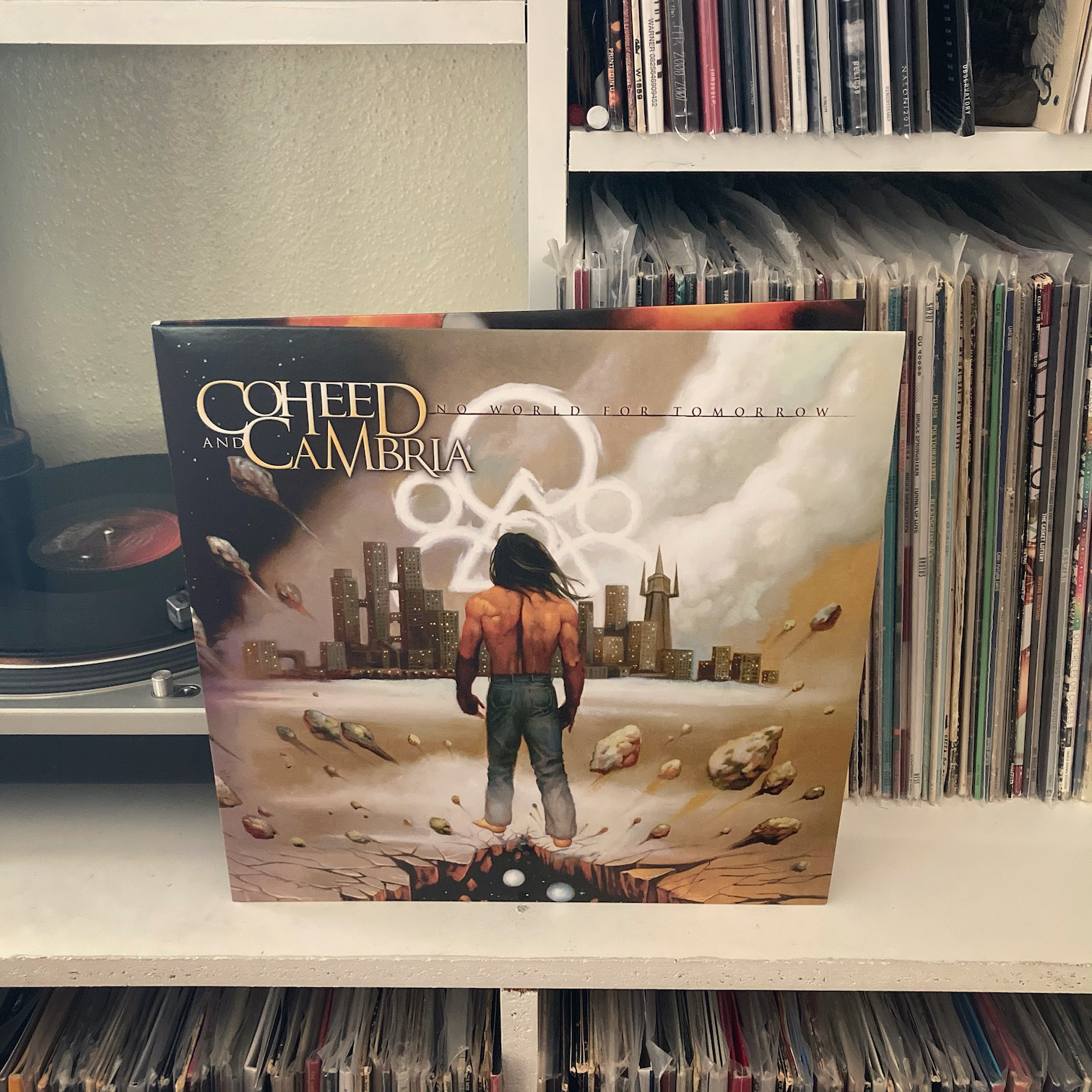 Coheed & Cambria attracts a lot of criticism for their… whole deal. Sci-fi prog rock concept albums based on a comic book written by the lead singer who then sings about genetic wars and space armadas in an androgynous elf voice isn’t exactly a recipe for mainstream success. But at their best, Coheed has a gift for wrapping these weirder elements up in sugary sweet pop hooks and classic rock tropes.
Coheed & Cambria attracts a lot of criticism for their… whole deal. Sci-fi prog rock concept albums based on a comic book written by the lead singer who then sings about genetic wars and space armadas in an androgynous elf voice isn’t exactly a recipe for mainstream success. But at their best, Coheed has a gift for wrapping these weirder elements up in sugary sweet pop hooks and classic rock tropes.
This mystical ability to mix prog and pop made me a massive fan of their first three albums, but every time I’ve dug into their later works, it seemed they leaned far too heavily into their more experimental compositions, neglecting the earworms entirely. But after finally acquiring a copy of their stunning debut, I learned that I had entirely missed their fourth album, No World For Tomorrow, which might actually be their hookiest, catchiest, classic-rockiest album ever.
When In Keeping Secrets of the Silent Earth” 3 came out, it was accompanied by a huge amount of press lauding their place in the hard rock lineage. Comparisons were made to classic pioneers like Led Zeppelin and Rush, both for Claudio Sanchez’s sky-high vocal range and their instrumental virtuosity. Nirvana may have killed hair metal, but Coheed was here to carry it on (Sanchez’s own mop of absolutely unreal hair certainly helped the comparison).
And obviously, there were more than just flashes of that narrative across the first three albums, in songs like the opening arena rock anthem of “In Keeping Secrets of the Silent Earth: 3” or the “Kashmir”-esque tour-de-force that was “Welcome Home.” But those albums also featured some more meandering moments that, while they certainly recalled the more indulgent moments of their forebears, weren’t going to find any radio play any time soon (not that that’s why anyone has ever listened to Coheed).
These earlier albums almost always tempered even the weirdest songs with perfect singalong hooks (who else has given us a murder singalong as catchy as the “Die white girls” chorus at the end of “Al the Killer”?). Even the nine-minute hidden track prog opus “21:13” crammed dozens of hooks between meter changes and odd-time riffs. But No World For Tomorrow, the final album in the Armory Wars tetralogy, pulls back a bit from the sonic wandering and cranks up the hooks to eleven, digging their heels even deeper into the canon of rock and roll history.
This album is so transparent in its influences (read: not ripoffs) that it feels almost like a Girl Talk album. Riffs are borrowed and warped with a knowing wink. Led Zeppelin and Rush remain the most obvious sonic touchstones, but there are also moments that recall The Who, Black Sabbath, Styx, Journey, and even the Doobie Brothers. “The Hound (of Blood and Rank)” and “Feathers” in particular sound like forgotten hits from the 70s and 80s, complete with arena-ready guitar solos. “Mother Superior” builds from an acoustic ballad to an epic barn burner, a la “Mama, I’m Coming Home” or “Stairway to Heaven” (perhaps that fruit hangs a bit too low?). Even the closing five-piece suite is much more hook-laden than the similar movements in the previous two albums—especially the string-aided ballad “IV – The Road and the Damned.”
But of course, it’s not all love letters to 70s and 80s Album Oriented Radio and pop rock. This is Coheed & Cambria, after all, and so there’s plenty of prog grandiosity to be had. This is especially true of the second track, “No World For Tomorrow,” which features all the tropes of their opening epics: fierce riffs, emotional tempo changes, and backing vocals designed to be sung by a huge crowd. It also features the most satisfying musical call-back on the album, which is when Claudio revisits the “what did I do to deserve” coda from “Blood Red Summer.” (Oddly, this is the only one of their first four albums to not feature the melodic motif that opens Second Stage Turbine Blade and appears on the next two records). “Gravemakers & Gunslingers” is similar aggressive in a satisfyingly chest-thumping way, aided by Coheed delivering the bloodthirsty lyrics with more of a shout than a melody.
But perhaps the most accessible part of this album is its length. This record clocks in just over sixty minutes, which is at least ten minutes shorter than the two albums before it. It’s still a big pill to swallow for anyone jumping into the band cold, but for any fans of Coheed or prog rock in general, it’s pure pop candy. And after years of ignoring this album, it’s time I had dessert.